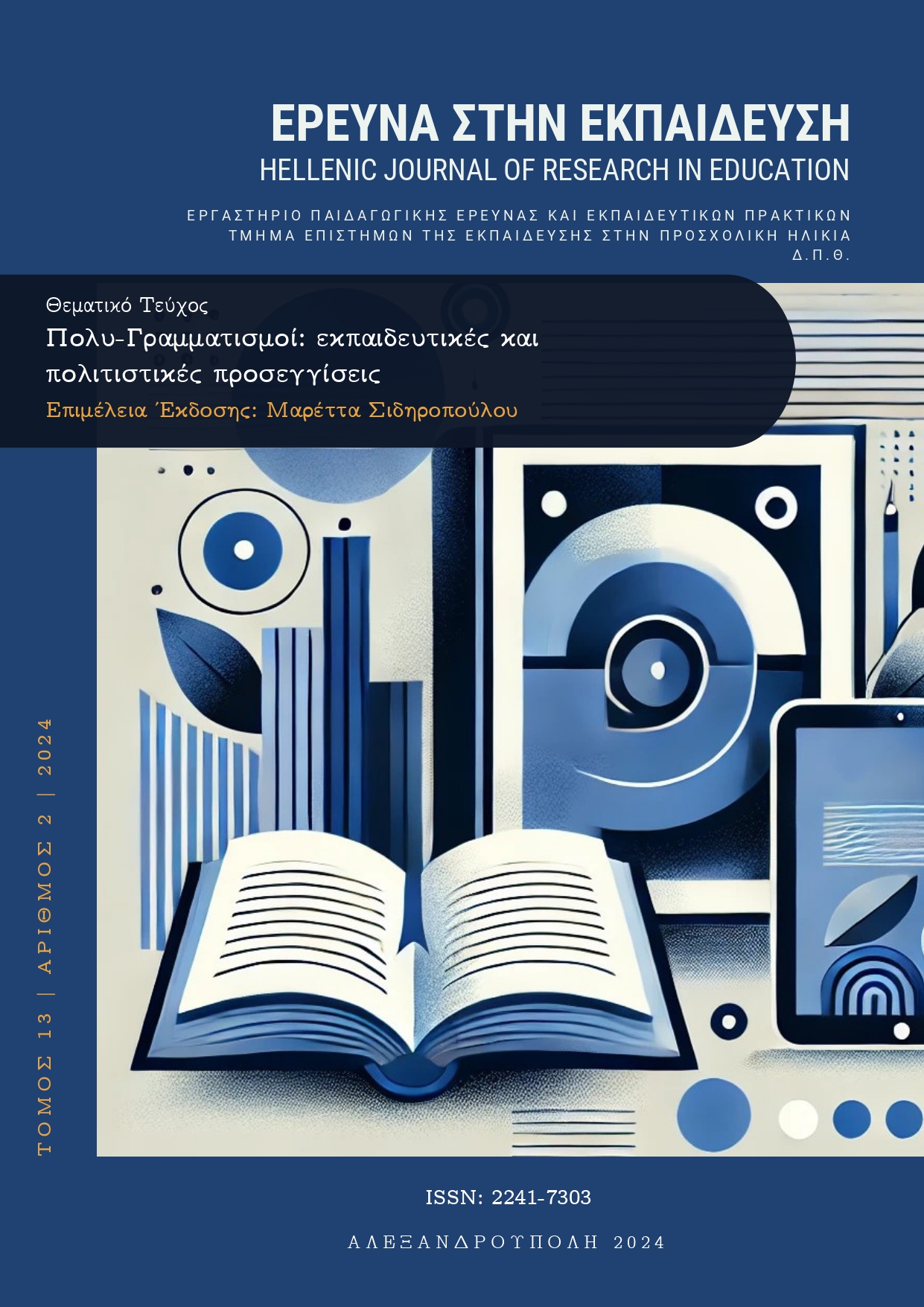Αναλυτικά προγράμματα για την ανάπτυξη δεξιοτήτων και στρατηγικών για τον γραμματισμό στην Τεχνητή Νοημοσύνη (ΤΝ)

Περίληψη
Στόχος της παρούσας δημοσίευσης είναι να ορίσει την έννοια του Γραμματισμού στην ΤΝ και να διερευνήσει τα χαρακτηριστικά αναλυτικών προγραμμάτων που καλλιεργούν δεξιότητες και στρατηγικές για τον γραμματισμό στην ΤΝ. Υποστηρίζουμε ότι πρόκειται για έναν γραμματισμό 4ης γενιάς που εμπερικλείει τα χαρακτηριστικά προηγούμενων μορφών γραμματισμού (λειτουργικός, κοινωνικός και ψηφιακός). Η δημοσίευση ξεκινά με μια ενδελεχή ανασκόπηση της έννοιας του γραμματισμού, ορίζει τον γραμματισμό στην ΤΝ με βάση την προηγούμενη βιβλιογραφία και υιοθετεί το θεωρητικό πλαίσιο των τεσσάρων διαστάσεων της εκπαίδευσης (Fadel et al., 2015) για να περιγράψει τα χαρακτηριστικά της εκπαίδευσης στην ΤΝ.
Λεπτομέρειες άρθρου
- Πώς να δημιουργήσετε Αναφορές
-
Γαβριηλίδου Ζ. (2024). Αναλυτικά προγράμματα για την ανάπτυξη δεξιοτήτων και στρατηγικών για τον γραμματισμό στην Τεχνητή Νοημοσύνη (ΤΝ). Έρευνα στην Εκπαίδευση, 13(2), 4–15. https://doi.org/10.12681/hjre.37397
- Ενότητα
- Άρθρα

Αυτή η εργασία είναι αδειοδοτημένη υπό το CC Αναφορά Δημιουργού – Μη Εμπορική Χρήση – Παρόμοια Διανομή 4.0.
Τα πνευματικά δικαιώματα των άρθρων του περιοδικού ανήκουν στους συγγραφείς. Τα άρθρα διατίθενται με άδειες Creative Commons CC-BC-SA 4.0


